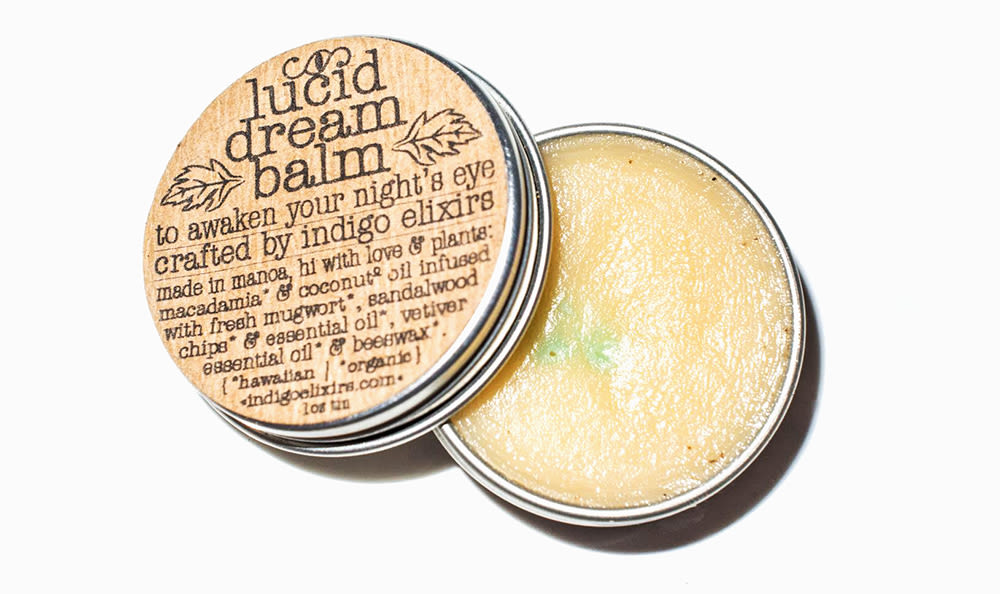There isn’t a night that goes by where I don’t dream. Honestly, the minute I fall asleep, dreams unfold so automatically that I actually look forward to them. Around my neighborhood in Brooklyn, dreaming is an exercise similar to yoga. There are flyers posted on various lampposts and in coffee shops that advertise lucid dreaming techniques. For those who aren’t familiar, lucid dreaming defines the moment when you become aware that you are dreaming and, in some cases, are able to control your dreams. There are ways to do this like writing your dreams down or perhaps, as I discovered, you can even buy it in the form of a balm.
About a week ago, I left my friend Kalika Farmer’s apartment with a product aptly labeled Lucid Dream Balm, made by the brand Indigo Elixirs. Kalika owns New Age, a consultancy dedicated to artistic productions (as well as an e-commerce platform that promotes organic beauty and health products). She presented this parting gift as a moisturizing alternative, explaining its star ingredient, vetiver, and its origins from The Big Island in Hawaii. Additionally, the balm also contains mugwort, which on Indigo Elixir’s site is described as having “an ancient reputation for bringing clarity and lucidity to our dreams and also for inciting dreams of premonition.” To use, simply apply the balm to your third eye, temples, and under your nose. After a few uses, I can’t say I’m clairvoyant, but the smell from the sandalwood is soothing and the combination of the macadamia-nut oil and coconut oil is a powerful one for dry skin. The balm elicits a calming effect and, if anything, is a catalyst for sweet dreams ahead.
—Connie Tsang
Photo courtesy of the author. But first, here's How To Sleep Better.

